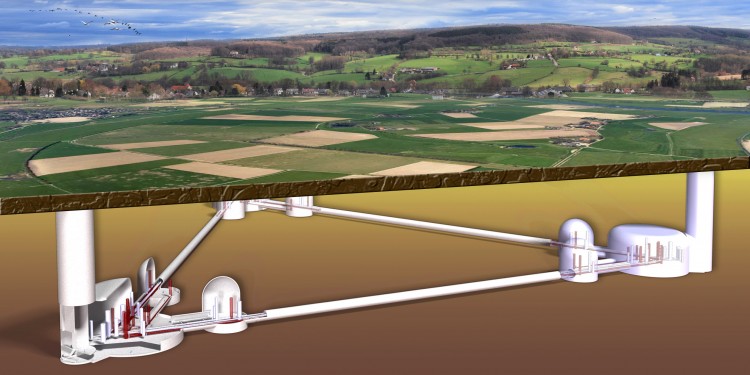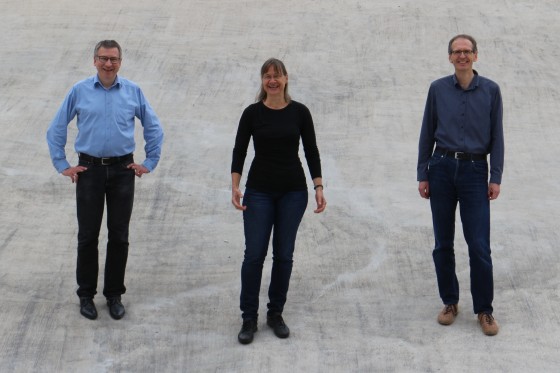
Millions in funding for astroparticle physicists and geophysicists
Investigating the basic building blocks of matter and the universe – in order to pursue this aim, physicists at the University of Münster are receiving a grant of 2.5 million euros from the Federal Ministry of Education and Research (BMBF). The ministry will thus support the large-scale projects of the participating research groups around the astroparticle physicists Prof. Alexander Kappes and Prof. Christian Weinheimer as well as the geophysicist Prof. Christine Thomas over the next three years.
The funding will be used, among other things, for the work on the planned European gravitational wave experiment "Einstein Telescope". After gravitational waves predicted by Albert Einstein were discovered several years ago, this planned gravitational wave detector is intended to open up a completely new era of astronomy and astrophysics in which the University of Münster wants to participate. In the funded project, the geophysicists and physicists intend to measure seismic disturbances and develop methods to compensate for them for the extremely sensitive measuring instrument, the interferometer.

Neutrinos are not only important astrophysical messenger particles for understanding the universe, but they themselves still hold great secrets. In order to determine the still unknown mass of neutrinos, the Münster scientists receive further funding for their projects in the KATRIN experiment at the Karlsruhe Institute of Technology. They will use the funding, among other things, for the application of large instruments and for data analysis.
The largest single amount is spent on the search for the mysterious dark matter with the "XENONnT" experiment and its successor "DARWIN" in the Italian underground Gran Sasso National Laboratory (LNGS). In addition to the analysis of the measurement data, the physicists from Münster are developing special cryogenic purification systems to bring the detector, which is filled with liquid xenon gas, to an unprecedentedly low radioactivity level.
The financial support by the BMBF is provided within the framework programme "Exploration of Universe and Matter".
